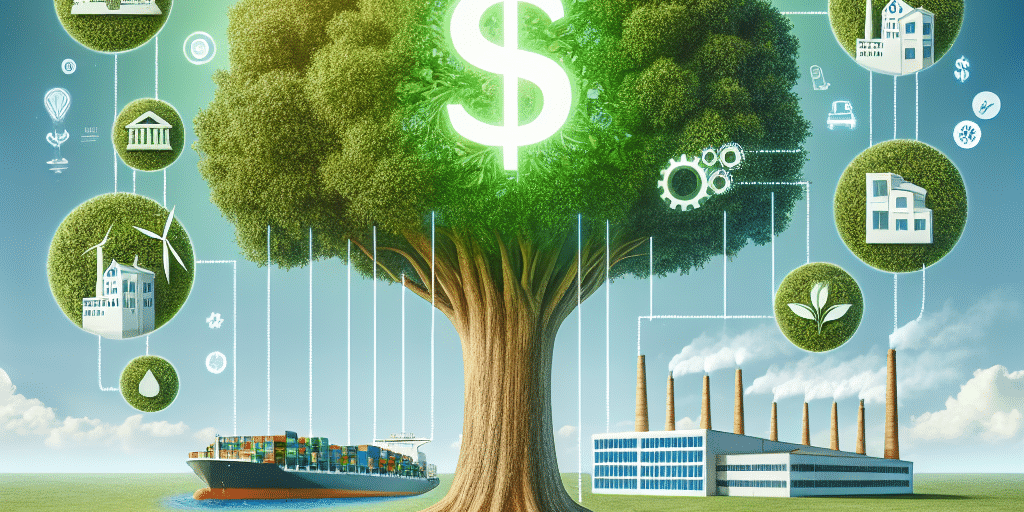As global awareness of climate change and sustainability issues grows, so too does the role of family offices in shaping environmentally responsible business practices. Traditionally guardians of wealth, family offices are increasingly embracing their potential as catalysts for sustainable supply chains. By allocating resources towards environmentally friendly initiatives and investments, they are driving change that not only benefits the planet but also enhances long-term profitability.
Understanding Family Offices
Family offices are private wealth management advisory firms that serve high-net-worth families. Beyond financial investment and management, they often focus on aligning their investments with the family’s values and mission. As many family offices are led by generations that prioritize sustainability, there is a natural inclination to integrate ecological considerations into their investment strategies and business practices.
The Rise of Sustainable Investing
The trend toward sustainable investing is gaining traction globally. A report by the Global Sustainable Investment Alliance notes that sustainable investing assets have grown exponentially, driven by heightened investor awareness and consumer demand for responsible business practices. Family offices are increasingly recognizing that sustainable investments can outperform traditional investment strategies. This shift stems from the understanding that sustainability isn’t just an ethical imperative but a business opportunity in a rapidly changing market.
Transforming Supply Chains
Family offices can leverage their influence to reshape supply chains, emphasizing sustainability through various avenues:
1. Investment in Sustainable Technologies
Family offices are actively investing in companies that develop sustainable technologies. This includes innovations in renewable energy, waste reduction, and resource-efficient manufacturing processes. By funding these startups and initiatives, family offices help cultivate a market that prioritizes environmental considerations.
2. Strategic Partnerships
Many family offices are forming partnerships with organizations that advocate for ethical supply chain practices. Collaborating with NGOs, academic institutions, and industry leaders, they can harness expertise and resources to implement sustainable practices more effectively. These partnerships can also amplify their impact, driving widespread change across industries.
3. Direct Influence on Portfolio Companies
Family offices that directly invest in businesses can leverage their ownership stakes to advocate for sustainable practices within those companies. By prioritizing suppliers that adhere to ethical standards, minimizing environmental impact, or implementing circular economy principles, family offices are urging their portfolio companies to embrace sustainability.
4. Training and Education
Education plays a vital role in promoting sustainability within supply chains. Family offices are investing in training programs for entrepreneurs and business leaders, equipping them with the knowledge and tools necessary to implement sustainable practices. This not only enhances individual company performance but also fosters a culture of sustainability within entire sectors.
5. Measuring Impact
Sustainability in supply chains requires effective measurement and reporting systems. Family offices are increasingly focused on developing metrics to evaluate the environmental and social impact of their investments. By demanding transparency and accountability, they can push suppliers to adopt more responsible practices while enabling informed investment decisions.
The Business Case for Sustainability
The integration of sustainable practices within supply chains is not merely altruistic; it also aligns with sound business strategies. Companies with robust sustainability practices can reduce operational costs through improved efficiencies, mitigate risks associated with environmental regulations, and enhance brand loyalty among increasingly eco-conscious consumers. Family offices recognize that sustainability can drive profitability and shield wealth against future economic volatility driven by environmental challenges.
Challenges Ahead
Despite the potential for impactful change, obstacles remain. Many companies, particularly smaller suppliers, may lack the resources or knowledge to transition to sustainable practices. Additionally, the varying definitions and standards of sustainability can complicate efforts. Family offices must therefore advocate for broader industry standards while supporting suppliers in their sustainable transitions.
Conclusion
Family offices are uniquely positioned to shape the future of sustainable supply chains. By aligning their investments with a commitment to sustainability, they can foster significant change in the business landscape. As these offices embrace their roles as stewards of not only family wealth but also planetary well-being, they contribute to a more sustainable economy. The movement towards greener returns is just beginning, but with the influence of family offices, the journey toward responsible supply chains seems promising on the horizon.











